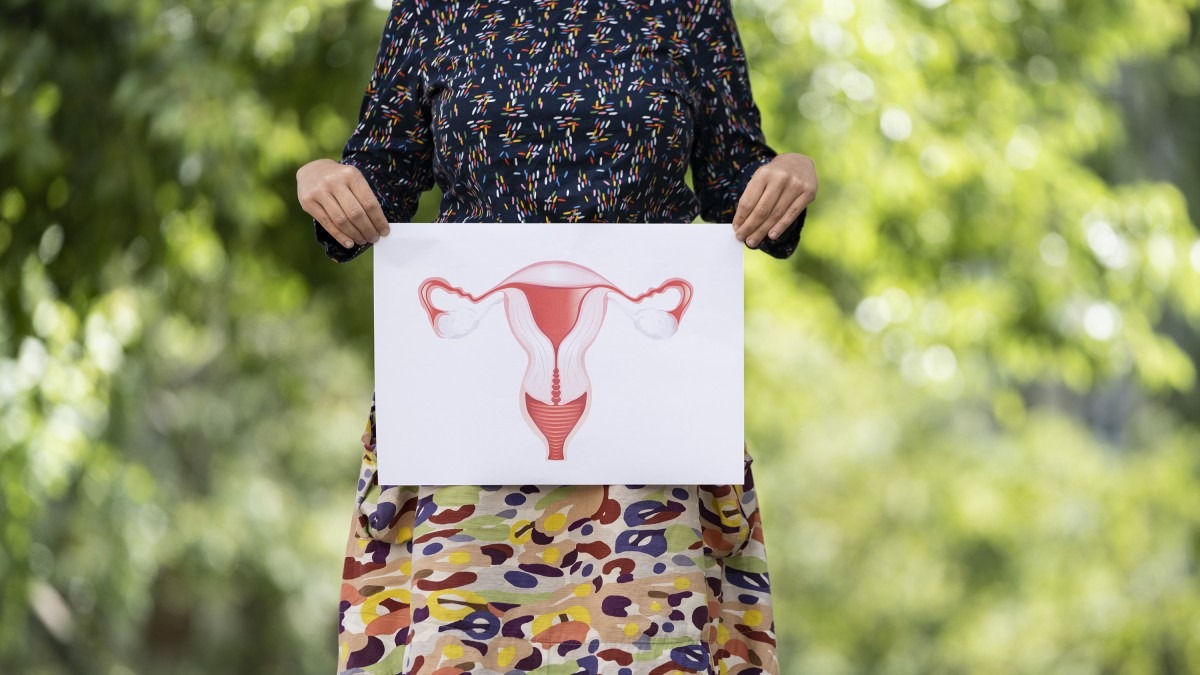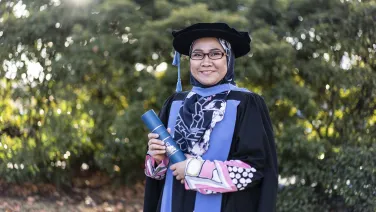It’s not like having your appendix out: why communication matters for women having a hysterectomy
Every year, around 30,000 Australian women have a hysterectomy. It is the second most common major surgery for women under the age of 60, after caesareans.
It’s also a procedure at the nexus of what’s called the “three Ms” of taboo issues in women’s health: menstruation, maternity, and menopause. For many women, this means that this very common, complex surgery is very difficult to talk about.
"When I was looking through the academic literature on hysterectomies, I kept seeing the same themes over and over again," says Aarti Kapoor, a PhD researcher at the Australian National Centre for the Public Awareness of Science (CPAS) at ANU.
"Women needing to make a decision about undergoing hysterectomy were saying, ‘We wish we could ask questions, but at the same time, we don’t know what to ask or how to ask.’ There’s a big gap there."
It’s a gap which Aarti hopes to understand through her ongoing PhD research into the communication needs of hysterectomy patients in Australia.
"It’s very exploratory research," she says. "I'm going to listen to the gynaecologists, I'm going to listen to the hysterectomy patients, and then try to connect the dots through my science communication training."
Australia has the highest rate of hysterectomy of comparable developed countries in the OECD, a statistic which Aarti is hoping to better understand.
“Hysterectomy is usually an elective procedure mostly conducted to relieve benign gynaecological symptoms, which means that choices need to be made.
“I’m curious to know how patients in Australia come to make the decision to have the procedure. What information are they getting from their gynaecologist? What are the other sources of information they access before making their decision? How do they and their gynaecologist address taboo issues during consultations?"
After their hysterectomy, women might be faced with the grim reality of needing to cope with adverse events such as infection on their surgical site, bladder and bowel injuries, depression, fears about sexual intimacy, and the side-effects of surgical menopause.
As part of her research, Aarti will also look at how doctor-patient communication during the decision-making process impacts a patient’s coping ability with these hysterectomy risks.
"The gynaecologist plays a very influential role here in the communication process. Overall, there's a real challenge for doctors and health service providers, especially when communicating things like risks, medical jargon, and taboos.
"I'd also like to see whether there's room for improvement in medical communication training."
From a patient’s perspective, Aarti says that there are many questions that a woman might not be very comfortable asking their gynaecologist, because of the stigma attached to certain topics in women’s health, to varying degrees across different cultures.
“Your identity, your culture, the amount of support you have: all these things come into play.
"But the onus shouldn't be on the patient to figure out everything to make their decision.
“Ultimately, I would like both the women and their gynaecologists to get past their communication barriers, and have open and frank discussions during the hysterectomy decision-making process."
If you are interested in sharing your experience of hysterectomy with Aarti for her research, you can email her on aarti.kapoor@anu.edu.au
CPAS at ANU is a global leader in science communication. It was the first science communication centre established in Australia and is now the most diverse of its kind in the world. Find out more about our Master of Science Communication, the Master of Science Communication Outreach and PhD programs.




